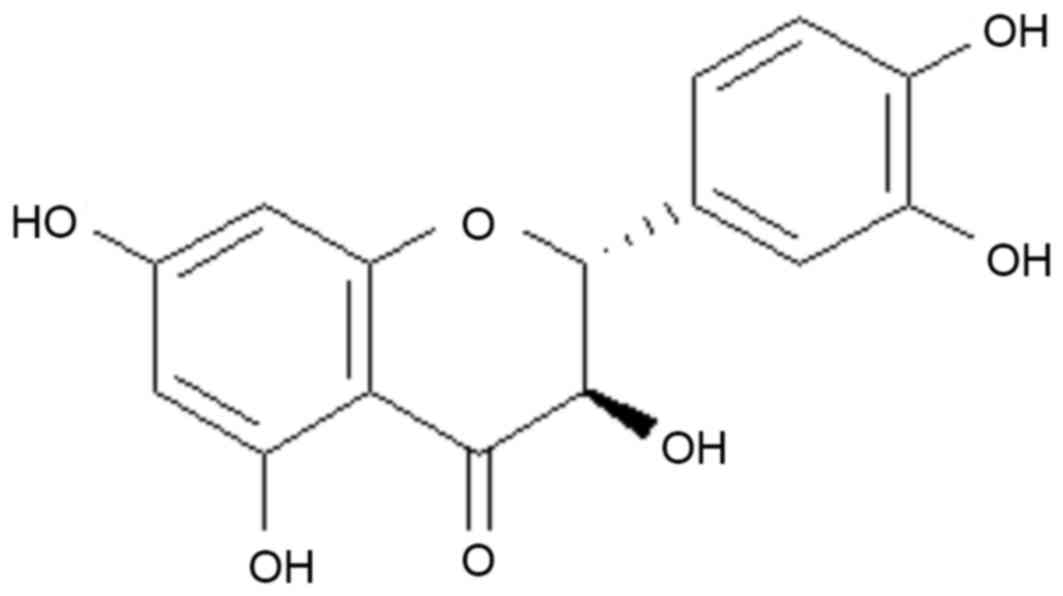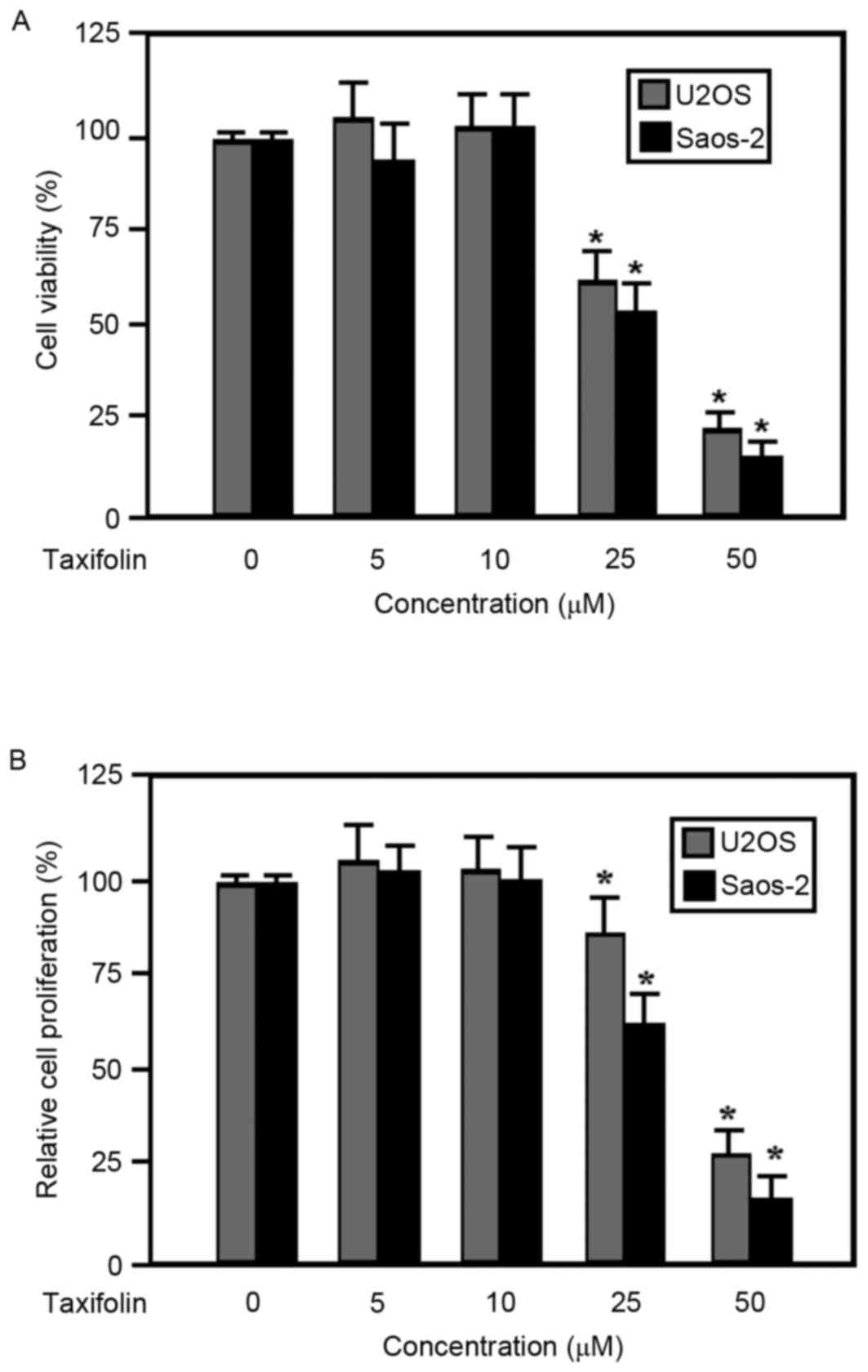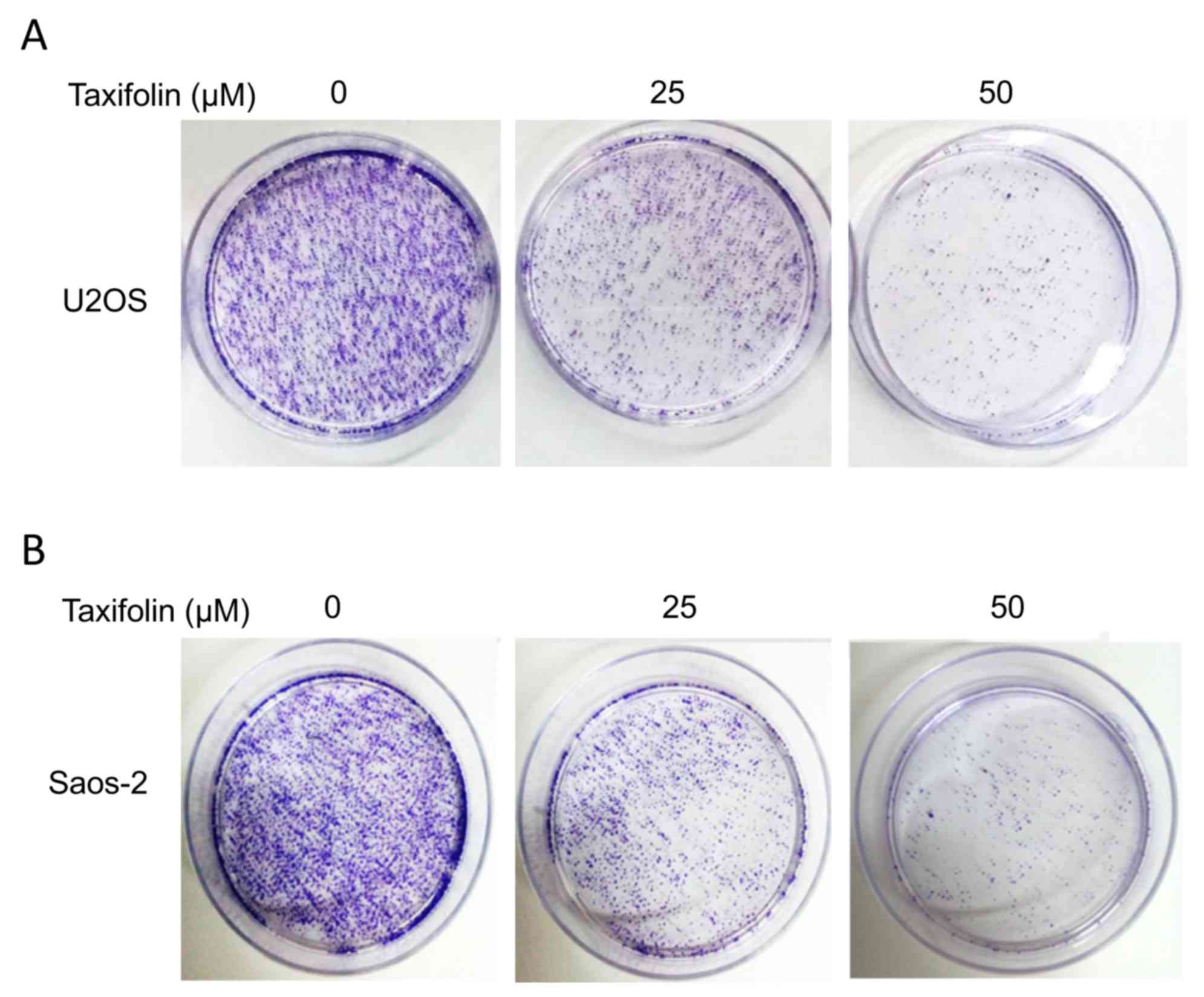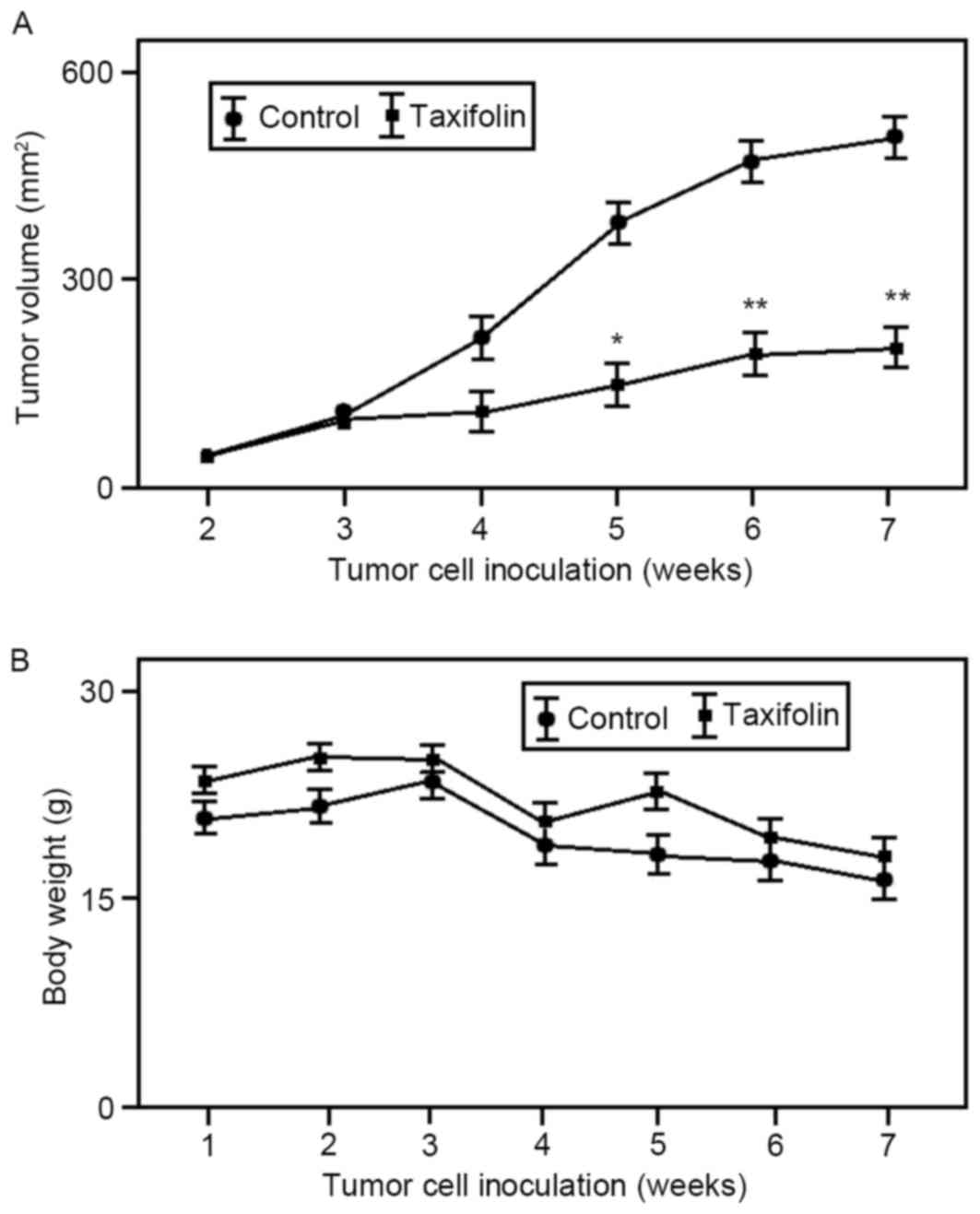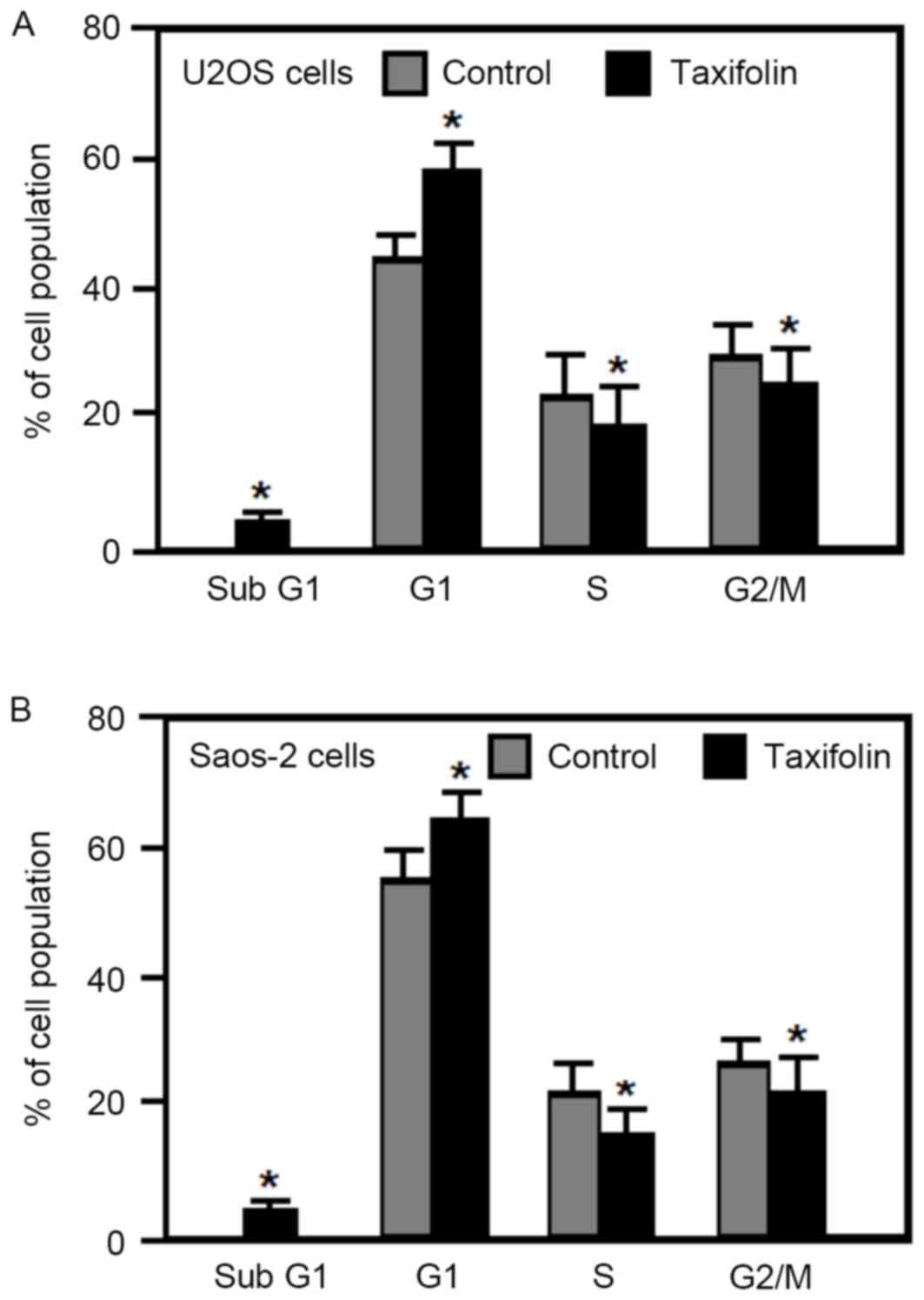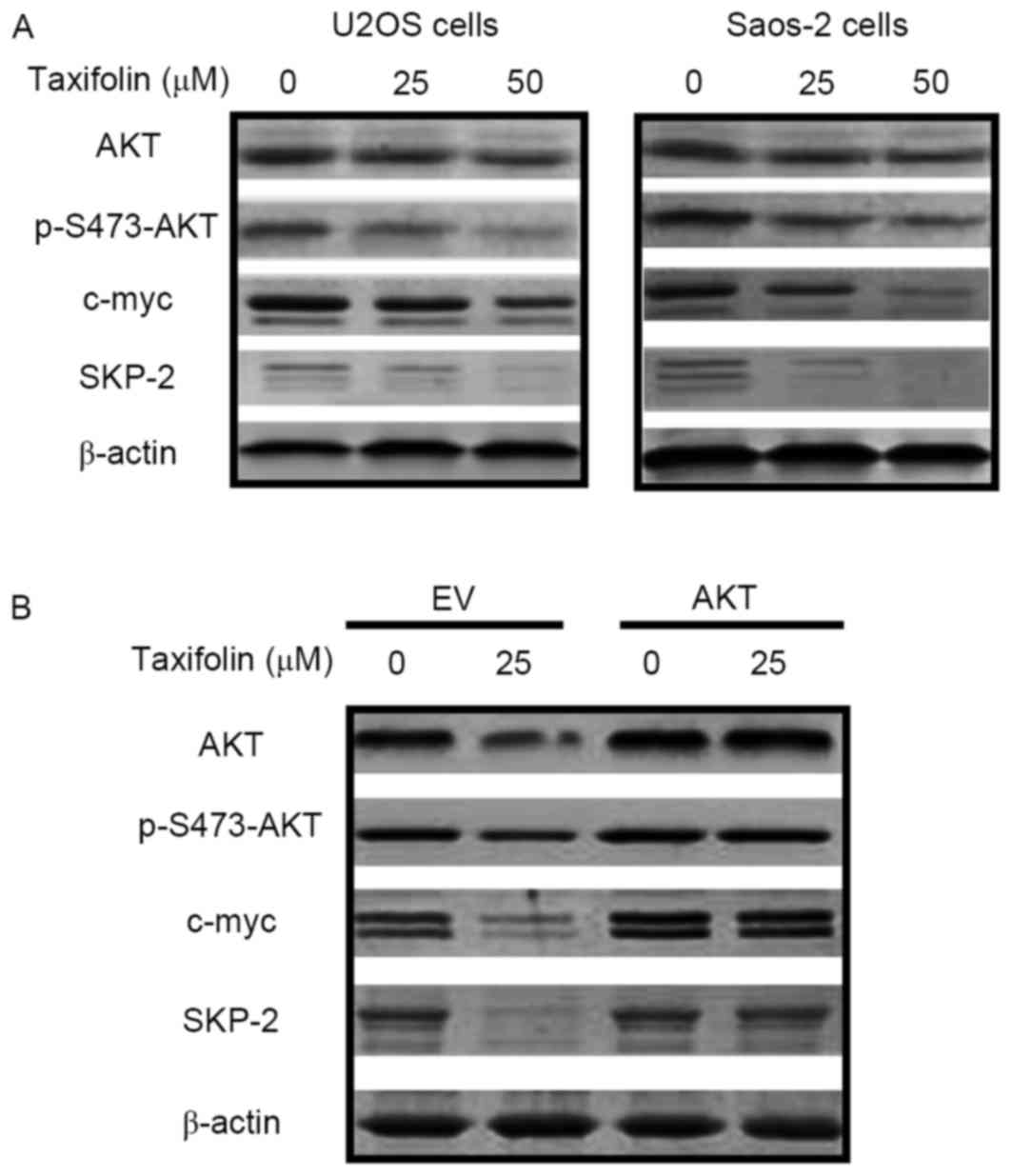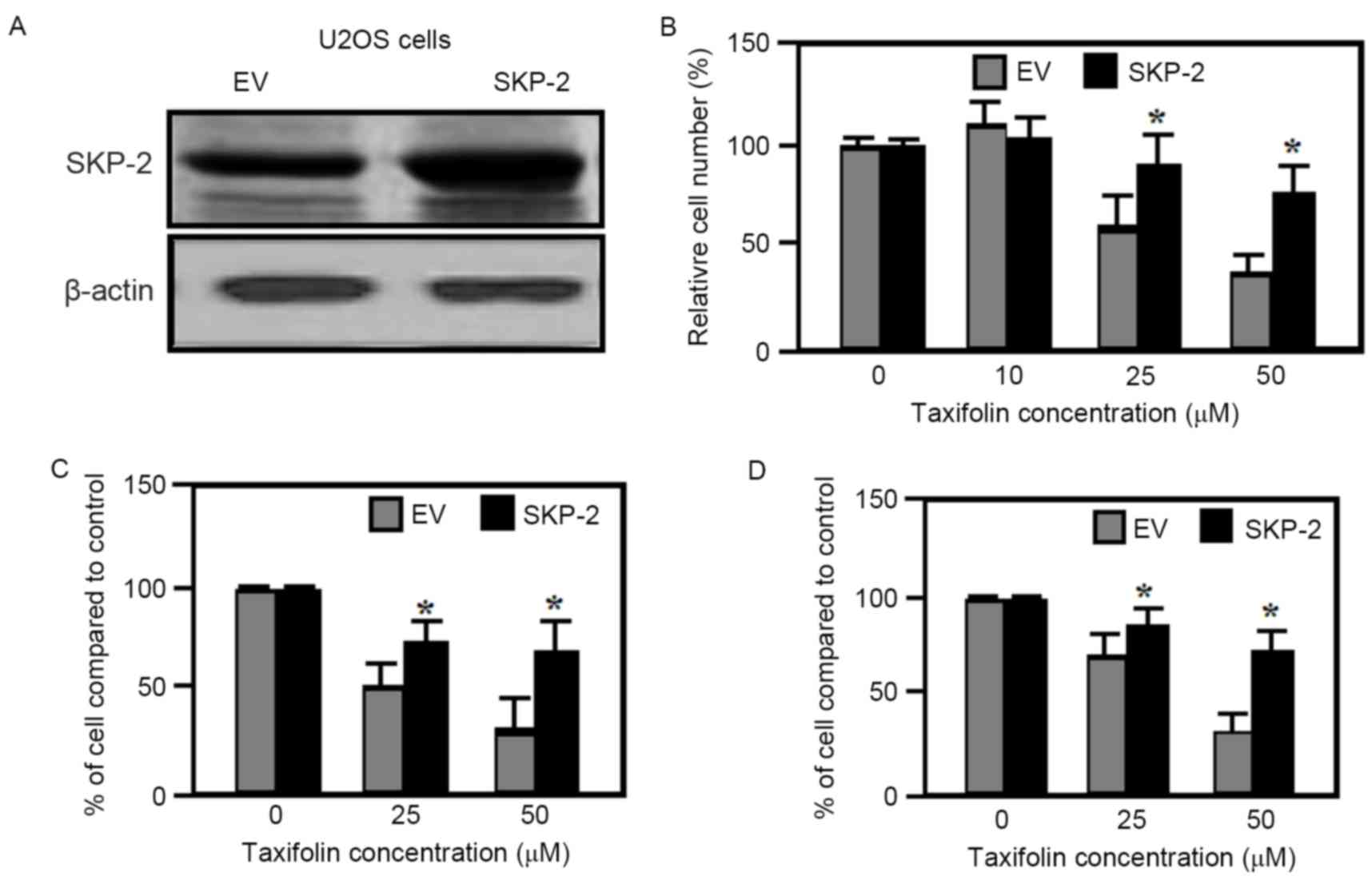|
1
|
Duong LM and Richardson LC: Descriptive
epidemiology of malignant primary osteosarcoma using
population-based registries, United States, 1999–2008. J Registry
Manag. 40:59–64. 2013.PubMed/NCBI
|
|
2
|
Savage SA, Woodson K, Walk E, Modi W, Liao
J, Douglass C, Hoover RN and Chanock SJ; National Osteosarcoma
Etiology Study Group, : Analysis of genes critical for growth
regulation identifies insulin-like growth factor 2 receptor
variations with possible functional significance as risk factors
for osteosarcoma. Cancer Epidemiol Biomarkers Prev. 16:1667–1674.
2007. View Article : Google Scholar : PubMed/NCBI
|
|
3
|
Longhi A, Errani C, De Paolis M, Mercuri M
and Bacci G: Primary bone osteosarcoma in the pediatric age: State
of the art. Cancer Treat Rev. 32:423–436. 2006. View Article : Google Scholar : PubMed/NCBI
|
|
4
|
Longhi A, Fabbri N, Donati D, Capanna R,
Briccoli A, Biagini R, Bernini G, Ferrari S, Versari M and Bacci G:
Neoadjuvant chemotherapy for patients with synchronous multifocal
osteosarcoma: Results in eleven cases. J Chemother. 13:324–330.
2001. View Article : Google Scholar : PubMed/NCBI
|
|
5
|
Collins M, Wilhelm M, Conyers R, Herschtal
A, Whelan J, Bielack S, Kager L, Kühne T, Sydes M, Gelderblom H, et
al: Benefits and adverse events in younger versus older patients
receiving neoadjuvant chemotherapy for osteosarcoma: Findings from
a meta-analysis. J Clin Oncol. 31:2303–2312. 2013. View Article : Google Scholar : PubMed/NCBI
|
|
6
|
Middleton E Jr, Kandaswami C and
Theoharides TC: The effects of plant flavonoids on mammalian cells:
Implications for inflammation, heart disease, and cancer. Pharmacol
Rev. 52:673–751. 2000.PubMed/NCBI
|
|
7
|
Dajas F, Rivera F, Blasina F, Arredondo F,
Echeverry C, Lafon L, Morquio A and Heizen H: Cell culture
protection and in vivo neuroprotective capacity of flavonoids.
Neurotox Res. 5:425–432. 2003. View Article : Google Scholar : PubMed/NCBI
|
|
8
|
Slimestad R, Fossen T and Vågen IM:
Onions: A source of unique dietary flavonoids. J Agric Food Chem.
55:10067–10080. 2007. View Article : Google Scholar : PubMed/NCBI
|
|
9
|
Guo H, Zhang X, Cui Y, Zhou H, Xu D, Shan
T, Zhang F, Guo Y, Chen Y and Wu D: Taxifolin protects against
cardiac hypertrophy and fibrosis during biomechanical stress of
pressure overload. Toxicol Appl Pharmacol. 287:168–177. 2015.
View Article : Google Scholar : PubMed/NCBI
|
|
10
|
Liang L, Gao C, Luo M, Wang W, Zhao C, Zu
Y, Efferth T and Fu Y: Dihydroquercetin (DHQ) induced HO-1 and NQO1
expression against oxidative stress through the Nrf2-dependent
antioxidant pathway. J Agric Food Chem. 61:2755–2761. 2013.
View Article : Google Scholar : PubMed/NCBI
|
|
11
|
Zhang ZR, Al Zaharna M, Wong MM, Chiu SK
and Cheung HY: Taxifolin enhances andrographolide-induced mitotic
arrest and apoptosis in human prostate cancer cells via spindle
assembly checkpoint activation. PLoS One. 8:e545772013. View Article : Google Scholar : PubMed/NCBI
|
|
12
|
Kim YJ, Choi SE, Lee MW and Lee CS:
Taxifolin glycoside inhibits dendritic cell responses stimulated by
lipopolysaccharide and lipoteichoic acid. J Pharm Pharmacol.
60:1465–1472. 2008. View Article : Google Scholar : PubMed/NCBI
|
|
13
|
Ahn JY, Choi SE, Jeong MS, Park KH, Moon
NJ, Joo SS, Lee CS, Choi YW, Li K, Lee MK, et al: Effect of
taxifolin glycoside on atopic dermatitis-like skin lesions in
NC/Nga mice. Phytother Res. 24:1071–1077. 2010.PubMed/NCBI
|
|
14
|
Rogovskiĭ VS, Matiushin AI, Shimanovskiĭ
NL, Semeĭkin AV, Kukhareva TS, Koroteev AM, Koroteev MP and
Nifant'ev EE: Antiproliferative and antioxidant activity of new
dihydroquercetin derivatives. Eksp Klin Farmakol. 73:39–42.
2010.(In Russian).
|
|
15
|
Vrba J, Gažák R, Kuzma M, Papoušková B,
Vacek J, Weiszenstein M, Křen V and Ulrichová J: A novel
semisynthetic flavonoid 7-O-galloyltaxifolin upregulates heme
oxygenase-1 in RAW264.7 cells via MAPK/Nrf2 pathway. J Med Chem.
56:856–866. 2013. View Article : Google Scholar : PubMed/NCBI
|
|
16
|
Chuu CP and Lin HP: Antiproliferative
effect of LXR agonists T0901317 and 22(R)-hydroxycholesterol on
multiple human cancer cell lines. Anticancer Res. 30:3643–3648.
2010.PubMed/NCBI
|
|
17
|
Wilson JK, Sargent JM, Elgie AW, Hill JG
and Taylor CG: Feasibility study of the MTT assay for
chemosensitivity testing in ovarian malignancy. Br J Cancer.
62:189–194. 1990. View Article : Google Scholar : PubMed/NCBI
|
|
18
|
Chuu CP, Kokontis JM, Hiipakka RA, Fukuchi
J, Lin HP, Lin CY, Huo C, Su LC and Liao S: Androgen suppresses
proliferation of castration-resistant LNCaP 104-R2 prostate cancer
cells through androgen receptor, Skp2, and c-Myc. Cancer Sci.
102:2022–2028. 2011. View Article : Google Scholar : PubMed/NCBI
|
|
19
|
Ye J, Yin L, Xie P, Wu J, Huang J, Zhou G,
Xu H, Lu E and He X: Antiproliferative effects and molecular
mechanisms of troglitazone in human cervical cancer in vitro. Onco
Targets Ther. 8:1211–1218. 2015.PubMed/NCBI
|
|
20
|
Zhang A, He S, Sun X, Ding L, Bao X and
Wang N: Wnt5a promotes migration of human osteosarcoma cells by
triggering a phosphatidylinositol-3 kinase/Akt signals. Cancer Cell
Int. 14:152014. View Article : Google Scholar : PubMed/NCBI
|
|
21
|
Lin HP, Lin CY, Liu CC, Su LC, Huo C, Kuo
YY, Tseng JC, Hsu JM, Chen CK and Chuu CP: Caffeic acid phenethyl
ester as a potential treatment for advanced prostate cancer
targeting akt signaling. Int J Mol Sci. 14:5264–5283. 2013.
View Article : Google Scholar : PubMed/NCBI
|
|
22
|
Kreisberg JI, Malik SN, Prihoda TJ,
Bedolla RG, Troyer DA, Kreisberg S and Ghosh PM: Phosphorylation of
Akt (Ser473) is an excellent predictor of poor clinical outcome in
prostate cancer. Cancer Res. 64:5232–5236. 2004. View Article : Google Scholar : PubMed/NCBI
|
|
23
|
Liu CC, Hsu JM, Kuo LK and Chuu CP:
Caffeic acid phenethyl ester as an adjuvant therapy for advanced
prostate cancer. Med Hypotheses. 80:617–619. 2013. View Article : Google Scholar : PubMed/NCBI
|
|
24
|
Kokontis J, Takakura K, Hay N and Liao S:
Increased androgen receptor activity and altered c-myc expression
in prostate cancer cells after long-term androgen deprivation.
Cancer Res. 54:1566–1573. 1994.PubMed/NCBI
|
|
25
|
Han G, Wang Y and Bi W: C-Myc
overexpression promotes osteosarcoma cell invasion via activation
of MEK-ERK pathway. Oncol Res. 20:149–156. 2012. View Article : Google Scholar : PubMed/NCBI
|
|
26
|
Edwards J, Krishna NS, Witton CJ and
Bartlett JM: Gene amplifications associated with the development of
hormone-resistant prostate cancer. Clin Cancer Res. 9:5271–5281.
2003.PubMed/NCBI
|
|
27
|
Grad JM, Dai JL, Wu S and Burnstein KL:
Multiple androgen response elements and a Myc consensus site in the
androgen receptor (AR) coding region are involved in
androgen-mediated up-regulation of AR messenger RNA. Mol
Endocrinol. 13:1896–1911. 1999. View Article : Google Scholar : PubMed/NCBI
|
|
28
|
Liu Z, Zhang G, Li J, Liu J and Lv P: The
tumor-suppressive microRNA-135b targets c-myc in osteoscarcoma.
PLoS One. 9:e1026212014. View Article : Google Scholar : PubMed/NCBI
|
|
29
|
Field JK and Spandidos DA: The role of ras
and myc oncogenes in human solid tumours and their relevance in
diagnosis and prognosis (review). Anticancer Res. 10:1–22.
1990.PubMed/NCBI
|
|
30
|
Matthews GM, Lefebure M, Doyle MA, Shortt
J, Ellul J, Chesi M, Banks KM, Vidacs E, Faulkner D, Atadja P, et
al: Preclinical screening of histone deacetylase inhibitors
combined with ABT-737, rhTRAIL/MD5-1 or 5-azacytidine using
syngeneic Vk*MYC multiple myeloma. Cell Death Dis. 4:e7982013.
View Article : Google Scholar : PubMed/NCBI
|
|
31
|
Carrano AC, Eytan E, Hershko A and Pagano
M: SKP2 is required for ubiquitin-mediated degradation of the CDK
inhibitor p27. Nat Cell Biol. 1:193–199. 1999. View Article : Google Scholar : PubMed/NCBI
|
|
32
|
Tsvetkov LM, Yeh KH, Lee SJ, Sun H and
Zhang H: p27(Kip1) ubiquitination and degradation is regulated by
the SCF (Skp2) complex through phosphorylated Thr187 in p27. Curr
Biol. 9:661–664. 1999. View Article : Google Scholar : PubMed/NCBI
|
|
33
|
Elledge SJ and Harper JW: Cdk inhibitors:
On the threshold of checkpoints and development. Curr Opin Cell
Biol. 6:847–852. 1994. View Article : Google Scholar : PubMed/NCBI
|















